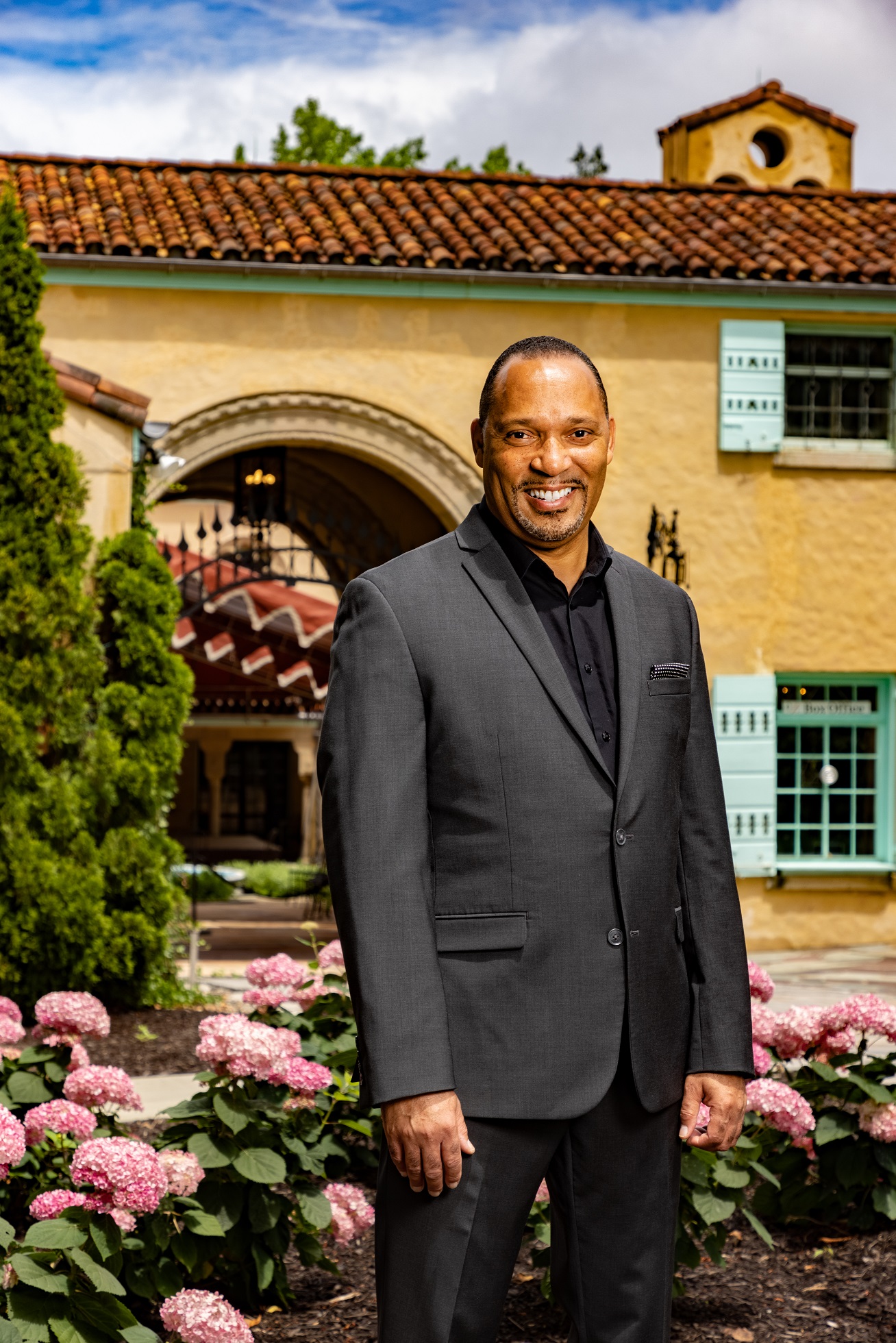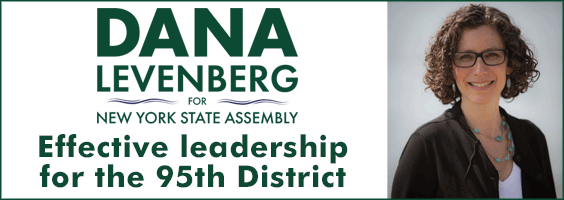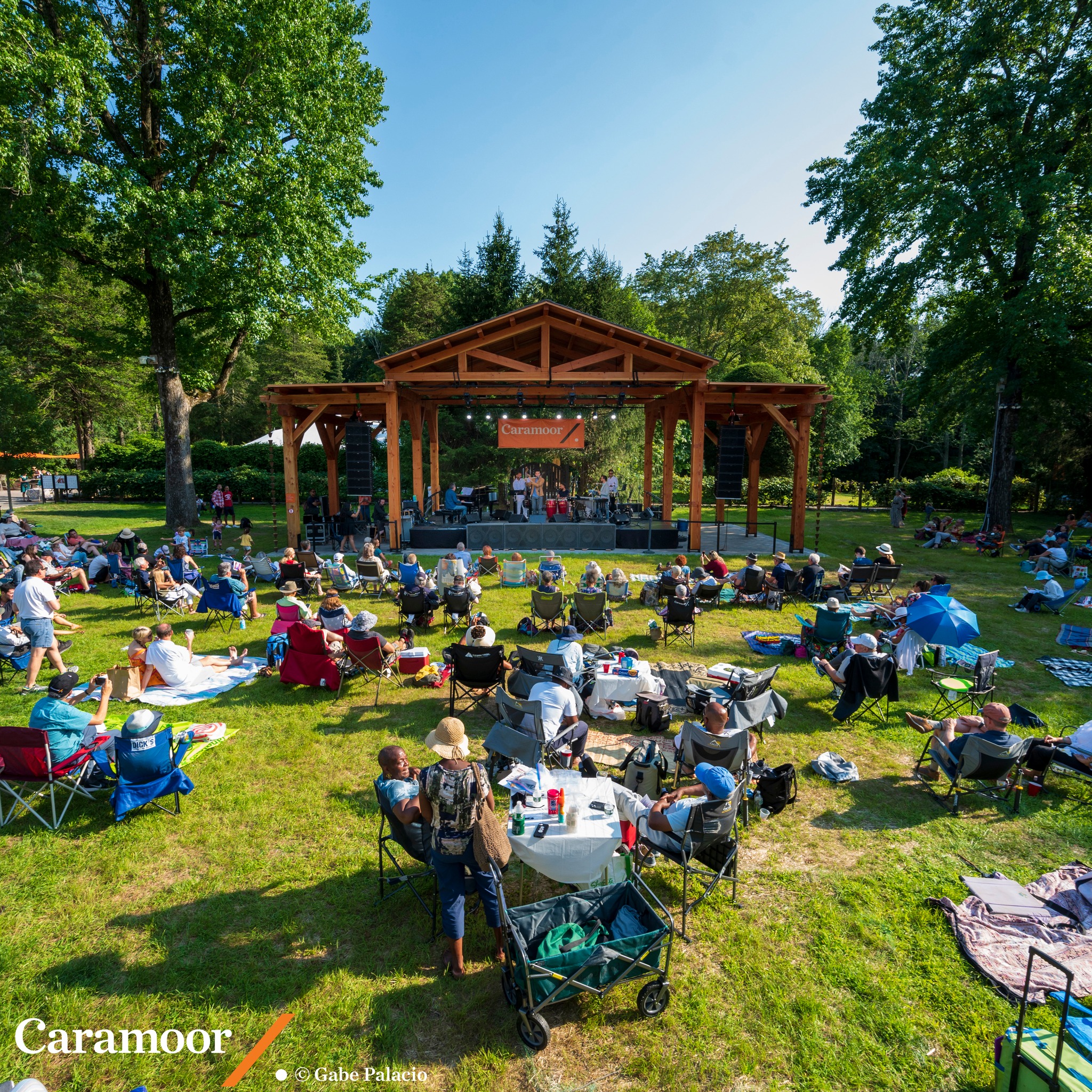Enjoying More at Caramoor
News Based on facts, either observed and verified directly by the reporter, or reported and verified from knowledgeable sources.
Caramoor President and CEO Ed Lewis discusses the venerable music venue’s return to normal post-COVID and previews this summer’s season of performances.

Good morning! Today is Monday, October 25, and you are reading today’s section of Examiner+, a digital newsmagazine serving Westchester, Putnam, and the surrounding Hudson Valley.
Need to subscribe — or upgrade your Examiner+ subscription to enjoy full access to all of our premium digital content? Take advantage of our special FREE TRIAL OFFER.
Take Examiner+ on a test drive today at NO CHARGE for a full month. Enjoy full membership-level access to all of our premium local content, delivered straight to your inbox six times a week.

When Ed Lewis became Caramoor President and CEO just one year ago, he had always admired the cultural mecca at the verdant, old estate as a venue for a wide variety of live music performances. Lewis’ background and the mission of Caramoor are a perfect fit. As a professionally trained musician, he moved seamlessly between the world of music and the performing arts fundraising arena. For more than two decades, Lewis worked in nonprofit management and fundraising in Washington, D.C. Before that, as Vice Chancellor for Advancement at the University of North Carolina School of the Arts, he created a multi-award-winning fundraising program supporting new, innovative programs, student scholarships, faculty endowments, facilities improvements, and community engagement. From 2015 to 2021, Lewis grew the school’s foundation from $35 million to over $70 million. As Senior Director of Development at the Clarice Smith Performing Arts Center at the University of Maryland, Lewis headed up a campaign for all performing arts on campus, raising over $42 million as part of the University of Maryland’s first $1 billion comprehensive campaign.
Lewis’ in-depth knowledge and love for music and the arts feed his belief that all performing art forms are a positive societal need. He trained as a violist, holds a Bachelor of Music degree from Northwestern University, a Master of Music degree from the University of Michigan, and completed a Doctoral Program at the University of Maryland School of Music, where he studied chamber music with the infamous Guarneri String Quartet. An accomplished and professional musician, Lewis performed with the Dallas Opera Orchestra, the Dallas Chamber Orchestra, Santa Fe Pro Musica, the Toledo Symphony, Spoleto Festival Orchestra, and Aspen Chamber Symphony, among other known ensembles.
We spoke to Lewis recently, right after Caramoor’s new season was first rolled out. He shared his views on the importance of live music performance, especially for youngsters, and his ideas on keeping Caramoor sustainable.
Examiner Media: When was the first time you visited Caramoor?
Ed Lewis: Actually, the first time I was at Caramoor was when I was interviewed in February 2021. But I remember listening to the live radio broadcasts from Caramoor in the 1990s and was always intrigued by the name and by their high-caliber performances. When I came to Caramoor to be interviewed, it was winter. Although everything was covered in snow, I could see how incredibly beautiful it was. It’s especially wonderful to have art and history all in one place.
E+: You mentioned that you play the viola and have higher education degrees in music. How did music shape your youth?
Lewis: Music was and is an important part of my life. I grew up in a family that listened to all genres, and I have a passion for jazz, opera, R&B, and classical. Learning to play the viola helped me tap into that passion but also taught me how to focus deeply, which was especially important when it came to math, science, and social studies. Chamber music, in particular, helped me hone my diplomacy skills because when you play the viola, it’s the violist that often sets the tone and changes the direction of the piece, and at any given moment, you are asked to lead with a solo line for a bar or two and then hop back down driving from the middle.
E+: Do you favor particular types of music, and have your tastes changed over the years?
Lewis: Hip-hop didn’t exist when I was growing up, but eventually, I got into it. I also expanded my listening to Broadway musicals, American roots music, and country and folk music. I primarily listen to classical and jazz.
E+: Can you speak to how this season’s programs address diversity?
Lewis: Diversity, equity, and inclusion, DEI, is quite integral to our mission. Music has the power to connect and heal our divisions, and I feel strongly as a presenter that it’s our responsibility to do our part. This is our most dynamic, diverse season, and Caramoor is presenting artists and composers who represent a vast array of backgrounds. We are focusing on music as a collective, cultural legend. Our programs expand the canon of classical music offerings. For example, one performance is a concert theater work, The Chevalier, about Joseph Bologne, a general of 18th century Europe’s first Black regiment. Not only was Chevalier a great example of an incredible human being, a world-class violinist and composer, but also one of the finest fencing masters in Europe. He was friends with Mozart and Marie Antoinette. Most people are unfamiliar with his contribution to the [musical] canon and the way he approached music. We always want our programs to ensure a broader diversity so audiences can hear themselves in the music and see themselves reflected from the stage.
Today’s supporting sponsor is Dana Levenberg for New York Assembly.


E+: How was the season’s program put together? What’s the process?
Lewis: Our artistic director, Kathy Schuman, curates the programs. She regularly attends live concerts and looks for artists and performers that are passionate and enthusiastic. We are always looking for new artists, but we also bring back [performing] alumni as well as partner with City Winery for American Roots performers, which includes blues, folk, and bluegrass. We do share our programming decisions with the board as we are putting things together for a big presentation.
E+: What are your thoughts on the importance of teaching the arts and music to K-12 school levels?
Lewis: The arts have the power to transform lives and make a real difference in how we live in the world. Learning to play an instrument is a skill that lasts a lifetime while instilling collaboration and team building. We just unveiled our Caramoor Kids program, which is all about collaboration and is geared toward public schools in the area. The program is also about building relationships with local schools, teachers, principals, and parents. Adina Williams, our Director of School Programs and Community Engagement, has conceived a program that utilizes the assets of Caramoor — its grounds, nature, and the arts. We have five education modules schools can participate in, including preparation for a field visit, the actual visit to Caramoor, and hands-on music instruction at the middle and high schools by professional musicians who reflect a broad diversity of society. This isn’t a one-off program; it’s a full circle engagement.
E+: What about outreach initiatives for youngsters in regionally underserved communities?
Lewis: Educators who represent that population had a significant say in the materials we will be using, some of which will be bi-lingual. Many teachers we connect with are fluent in several languages. We also have a strong partnership with Intempo, a Stamford, Connecticut, youth program that offers high-quality classical and intercultural music education, and we have a good connection with the Sphinx Organization – both are about teaching young Black and Latinx string players – in fact, I’m an alumnus of Sphinx.
E+: Has the new venue this season attracted more ticket buyers, and where are most guests from?
Lewis: We had a historic first day of ticket sales this year and saw an increase in new members. Last year was our first full [post-COVID] season, and although there was reduced capacity, we still saw ticket sales hit another historical level. Folks were ready to be outdoors, and we saw a more diverse and younger audience. In 2019, the last full year of real data, guests that came up from New York City made up just about 12 percent of our total audience. The balance comes primarily from Westchester and Fairfield counties.
E+: What are Caramoor’s major sources of revenue and funding?
Lewis: Individuals donate about 88 percent through our fundraising, and that’s about 55 percent of our budget. Our donors enable us to support different aspects of our programming at Caramoor. Earned income from ticket sales and rentals is about 24 percent and endowment income is about 21 percent. Government funds or foundations contribute about five percent of our revenue. We are also grateful to ARTsWestchester, which is a great advocate for the arts in the county and has helped fund some free programs.
E+: Did the COVID-19 pandemic change how Caramoor dealt with the public?
Lewis: Caramoor is in the unique position to be an outdoor venue, and outdoor concert attendance has been increasing, according to an NEA study. Because of COVID, people feel safer being outdoors. Our new Friends Field with its new stage is perfect for gatherings where people can bring their own seats, have picnics and hear great music. We do follow all state and federal COVID guidelines and best practices and will continue throughout the season.
Abby Luby is a writer and journalist living in the Hudson Valley. She currently writes for The Examiner and has written for The New York Daily News, SolveClimateNews, The Villager, The Real Deal, and the Record Review (www.abbyluby.com). Her feature writing on food and on the arts has been published in Hook Magazine, Valley Table Magazine, Edible Hudson Valley, Roll Magazine, Living@HomeCT, the Poughkeepsie Journal, The Stamford Advocate/Greenwich Time. Luby began writing creative non-fiction and poetry eight years ago. Her published short stories appear in the literary journals Parhelion and Persimmon Tree.
Examiner Media is a proud participant in The Trust Project.
CLICK HERE to review our best practices and editorial policies.
This piece is a news article. CLICK HERE to learn about our definitions for types of stories.
We welcome corrections, story ideas, and general feedback. CLICK HERE to use our actionable feedback form.

Examiner Media – Keeping you informed with professionally-reported local news, features, and sports coverage.


